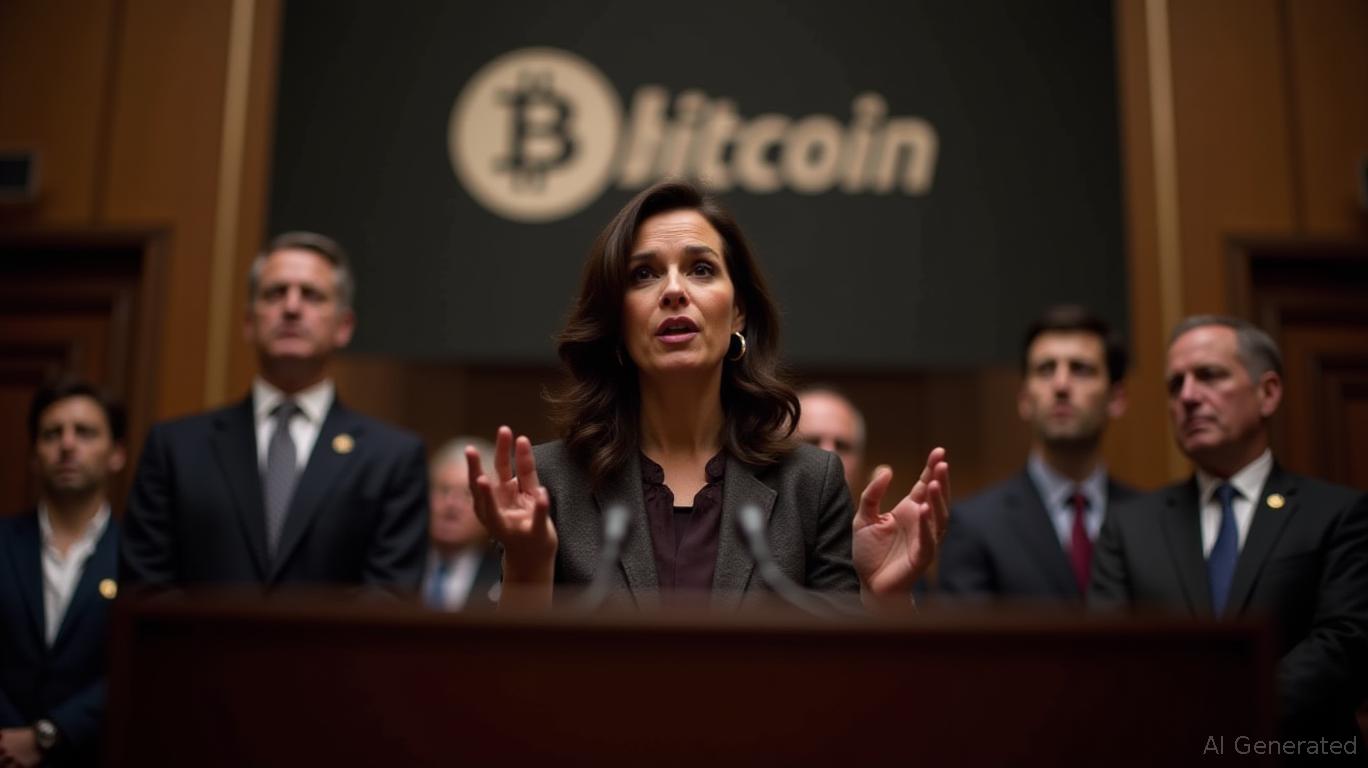Michigan Takes a Chance on Bitcoin—Allocates 10% of Reserves to a Risky Bet
- Michigan proposes allocating 10% of reserves to Bitcoin via the Michigan Bitcoin Reserve Act. - Lawmakers argue crypto diversifies state investments and hedges against inflation, with oversight by the treasurer. - Critics warn of Bitcoin's volatility and regulatory risks, urging pilot programs before large-scale commitments. - The bill reflects a national trend, with Ohio/Texas exploring similar moves, potentially influencing libertarian-leaning states. - Currently in committee review, the proposal spark
Michigan’s lawmakers are advancing a landmark measure that would permit up to 10% of the state’s reserve funds to be invested in
Multiple Republican representatives have voiced their backing for the bill, emphasizing that Michigan should remain competitive in the shifting financial sector. Supporters point to the growing embrace of Bitcoin by major institutions and its strength as a value-preserving asset in uncertain economic times. Oversight of the proposed investments would fall under the state treasurer, who would conduct periodic evaluations to ensure they meet risk and performance standards.
On the other hand, skeptics have pointed out the inherent instability of Bitcoin and the dangers involved in putting government funds into an asset with such dramatic price swings. Financial analysts have also raised issues about the legal framework and regulatory certainty of this type of investment, particularly at the state level. These apprehensions have led some to suggest pilot projects or smaller initial investments to fully gauge the risks before dedicating a notable share of public reserves.
Michigan’s initiative falls in line with a national movement where various states are investigating the use of digital assets. For example, Ohio and Texas have already started pursuing comparable projects, each with their own pace and level of community involvement. If Michigan moves forward, it could be among the earliest states to designate a specific portion of its reserves to a cryptocurrency investment plan—potentially motivating other states, especially those with strong technology or libertarian influences, to consider similar paths.
Although the bill is not yet law, it has ignited a wider discussion about the place of digital currencies in managing public finances. The debate cuts across party lines, with advocates praising it as a bold step toward more independent financial practices and opponents cautioning against the risk of severe losses. As the proposal makes its way through the legislative stages, both financial professionals and
At this point, the office of the state treasurer has not provided comprehensive criteria or risk evaluations regarding the Bitcoin investment. Nonetheless, legislators have promised that any allocation will come with rigorous transparency and oversight protocols, including frequent updates to lawmakers and public reports on investment outcomes. These measures are designed to reassure residents about responsible stewardship and the ethical application of taxpayer money.
The Michigan Bitcoin Reserve Act is presently under committee review, and there is no set date for a vote by the full legislature. The next scheduled hearing is set for early next month, where key industry figures and experts will share their insights. The results of these sessions are expected to influence the bill’s final structure and whether it will proceed to the wider legislative body for further consideration.

Disclaimer: The content of this article solely reflects the author's opinion and does not represent the platform in any capacity. This article is not intended to serve as a reference for making investment decisions.
You may also like
CandyBomb x RAVE: Trade futures to share 200,000 RAVE!
Bitget TradFi: Trade gold, forex, and more assets in one account
CandyBomb x US: Trade to share 5,400,000 US
[Initial Listing] Bitget to list Almanak (ALMANAK). Grab a share of 4,200,000 ALMANAK